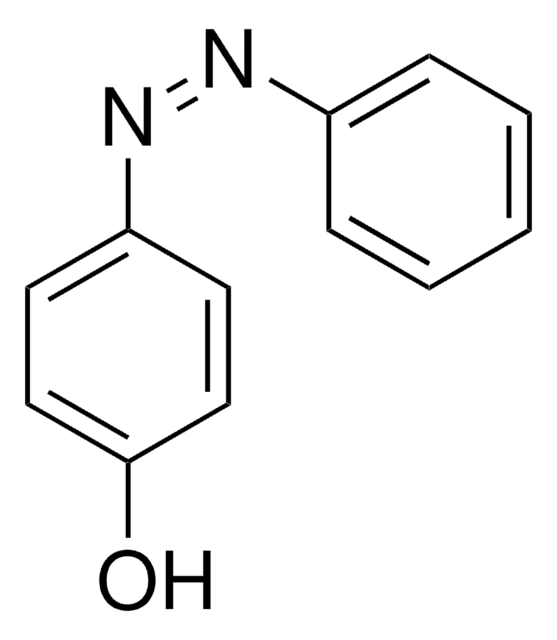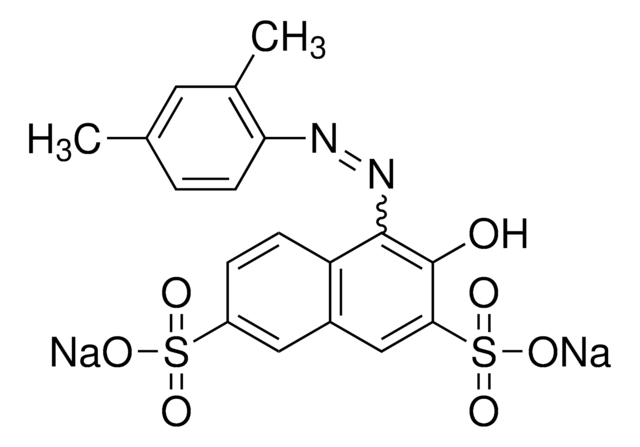199656
Sudan II
Dye content 90 %
Synonyme(s) :
1-(2,4-Xylylazo)-2-naphthol, Solvent Orange 7
About This Item
Produits recommandés
Forme
powder
Niveau de qualité
Composition
Dye content, 90%
Pf
156-158 °C (lit.)
Solubilité
chloroform: 10 mg/mL
λmax
493 nm
604 nm (2nd)
ε (coefficient d'extinction)
≥14000 at 491-497 nm in methanol at 0.005 g/L
≥9000 at 419-425 nm in methanol at 0.005 g/L
Application(s)
diagnostic assay manufacturing
hematology
histology
Température de stockage
room temp
Chaîne SMILES
Cc1ccc(\N=N\c2c(O)ccc3ccccc23)c(C)c1
InChI
1S/C18H16N2O/c1-12-7-9-16(13(2)11-12)19-20-18-15-6-4-3-5-14(15)8-10-17(18)21/h3-11,21H,1-2H3/b20-19+
Clé InChI
JBTHDAVBDKKSRW-FMQUCBEESA-N
Vous recherchez des produits similaires ? Visite Guide de comparaison des produits
Catégories apparentées
Application
Actions biochimiques/physiologiques
Mention d'avertissement
Warning
Mentions de danger
Conseils de prudence
Classification des risques
Eye Irrit. 2 - Skin Irrit. 2 - Skin Sens. 1
Code de la classe de stockage
11 - Combustible Solids
Classe de danger pour l'eau (WGK)
WGK 2
Point d'éclair (°F)
448.9 °F - closed cup
Point d'éclair (°C)
231.6 °C - closed cup
Équipement de protection individuelle
dust mask type N95 (US), Eyeshields, Gloves
Faites votre choix parmi les versions les plus récentes :
Certificats d'analyse (COA)
Vous ne trouvez pas la bonne version ?
Si vous avez besoin d'une version particulière, vous pouvez rechercher un certificat spécifique par le numéro de lot.
Déjà en possession de ce produit ?
Retrouvez la documentation relative aux produits que vous avez récemment achetés dans la Bibliothèque de documents.
Les clients ont également consulté
Notre équipe de scientifiques dispose d'une expérience dans tous les secteurs de la recherche, notamment en sciences de la vie, science des matériaux, synthèse chimique, chromatographie, analyse et dans de nombreux autres domaines..
Contacter notre Service technique











